Eurozone sinks into recession
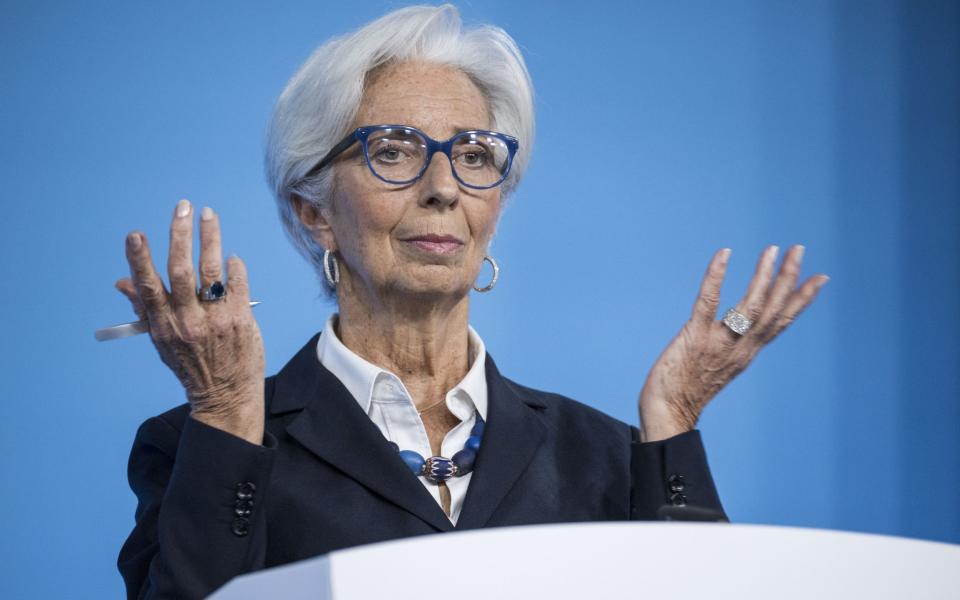
The eurozone entered into a technical recession at the start of the year, according to revised data, as rising inflation hit consumer spending.
The economy shrank by 0.1pc for a second consecutive quarter in the first three months of 2023, figures from the EU’s statistic agency showed.
Eurostat revised down an earlier forecast that had predicted slight growth, after the continent’s largest economy Germany said last month it had fallen into recession.
It had previously estimated that the eurozone economy had expanded by 0.1pc in the first quarter of the year.
Household consumption slumped by 0.3pc over the period, following a decline of 1pc in the previous quarter, indicating domestic demand was “hit hard by the combination of inflation and rising interest rates,” according to economists.
It comes as the European Central Bank is expected to continue raising interest rates at its next meeting later this month, and again in July, in a bid to bring down persistent inflation.
Capital Economics’ chief Europe economist Andrew Kenningham warned that the eurozone economy “is likely to contract again in the second quarter as the effects of monetary policy tightening continue to feed through”.
06:51 PM
That's all folks!
That’s all from me today. I’ll leave you with some insight from senior technology reporter Matthew Field on how Google plans to finally force workers back to the office...
06:47 PM
FTSE 100 dips amid concerns over higher borrowing costs
The FTSE 100 sank today as sentiment around global interest rates remaining higher for a longer period pressured stocks.
The internationally-focused FTSE 100 slipped 0.32pc to 7,599.74, while the domestically-focused FTSE 250 midcap index lost 0.2pc.
Surprise rate hikes by the Bank of Canada and the Reserve Bank of Australia this week have rattled investors globally, sparking concerns that major global central banks could stick to their rate tightening cycles for longer.
The European Central Bank is expected to raise key interest rates by 25 basis points on June 15 and again in July before pausing for the rest of the year as inflation remains sticky, according to a Reuters poll.
“The headwind from tighter monetary policy and generally tighter financial conditions is building up again,” said Andrea Cicione, head of research at TS Lombard.
06:32 PM
Scotrail workers end pay dispute after accepting 5pc salary increase
Union members at Scotrail have ended industrial action after accepting a pay offer from the nationalised train operator.
The Rail, Maritime and Transport union (RMT) said its members will receive a 5pc basic uplift with the lowest paid receiving as much as an 8pc increase.
The pay deal was overwhelmingly supported by Scotrail members in a referendum.
RMT general secretary Mick Lynch said:
This was a tough negotiation and our members have voted to accept this modest pay deal.
We have managed to negotiate this deal like many others on the railways including in Wales, the English regions and now Scotland.
Where the Department for Transport has the controlling mandate for 14 train operators, RMT has had a year-long dispute with multiple strikes.
Scotrail members have benefited from annual pay rises and extra value added to their overall pay packages, unlike RMT members on 14 rail operators, some of whom have not had a pay rise in four years.
06:25 PM
House prices in Britain are likely to fall 10pc over the next two years
House prices in Britain are likely to fall 10pc over the next two years, according to credit ratings agency Moody’s.
Moody’s warned that persistently high inflation and the recent spike in lending rates “will trigger a correction” in the UK housing market.
The warning comes as unexpectedly strong inflation data has sparked a rise in mortgage rates as investors scramble to price further increases to borrowing costs from the Bank of England in coming months.
Interest rates offered by mortgage lenders have soared in response and are now far above 5pc for two-year deals, compared with rates of less than 3pc only a year ago.
Moody’s said a bigger decline in house prices of around 21pc would have much wider implications for the economy. The agency said:
The UK sovereign would enter a recession in the second half of 2023, lasting for six quarters. Unemployment would reach 6pc by end 2024, still below its peak in the global financial crisis.
The housing market showed signs of recovery earlier this year after Liz Truss’s catastrophic mini-Budget sparked a surge in mortgage rates.
However, many economists expect a fall in house prices this year as the central bank’s interest rate hikes filter through into higher mortgage costs.

05:49 PM
WhatsApp takes on Twitter with ability to follow celebrities and company updates
WhatsApp is challenging Twitter by allowing users to broadcast messages to large numbers of followers, in a departure from its private messaging roots.
Technology editor James Titcomb explains:
The Meta-owned app has announced a feature called Channels that will let users subscribe to updates from celebrities, organisations and regular users.
The one-way feed will allow channel owners to post text, photos, videos and polls to followers.
The feature will be seen as an alternative to Twitter, which has long been used by public figures to post real-time updates to legions of fans or by organisations to broadcast crucial updates.
Several high-profile figures such as Elton John and Whoopi Goldberg have left Twitter in the wake of Elon Musk’s $44bn (£35bn) takeover of the social network. WhatsApp has 2bn users, around 10 times the number that Twitter reported before it was acquired by Mr Musk.
Football clubs are among those which have already signed up to use the feature...

05:11 PM
Fifa agrees new sponsorship deal with Budweiser despite last-minute Qatar ban
Fifa has reached a new sponsorship deal with Budweiser despite banning the beer from last year’s World Cup in Qatar.
Budweiser, owned by Belgian beer-maker AB InBev, will now be the official beer sponsor of Fifa’s Women’s World Cup in Australia and New Zealand later this year.
The deal extends the near 40-year partnership between the international football association and AB InBev, the world’s largest brewer.
The agreement comes after Fifa was forced by Qatar’s ultra-conservative officials last November to ban alcoholic beverages from World Cup stadiums.
The last-minute U-turn, announced just two days before the tournament’s opening match, meant AB InBev could only sell non-alcoholic Bud Zero in stadiums.
Budweiser is also the official beer sponsor for the men’s World Cup in 2026, which will take place across Canada, Mexico and the US.
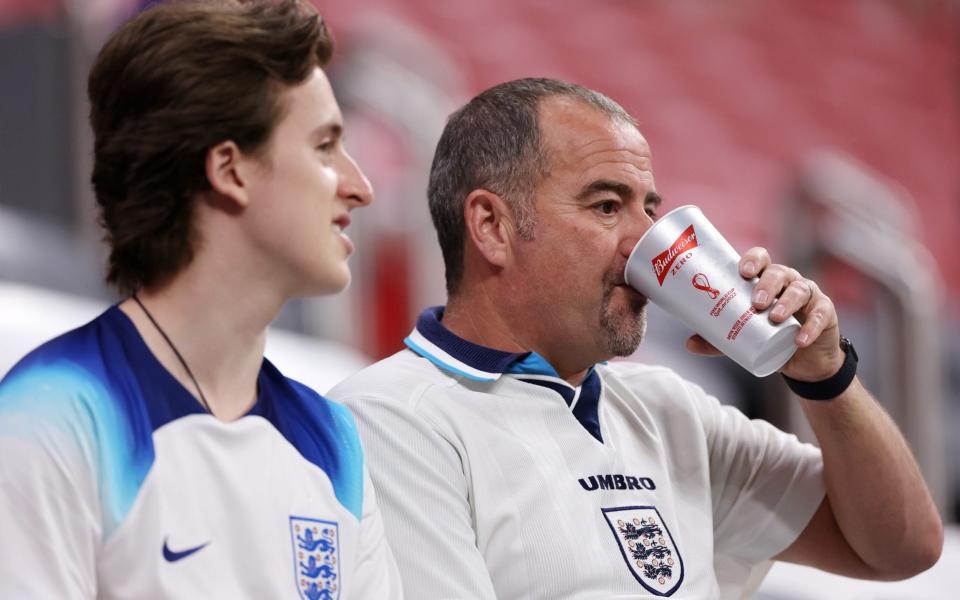
04:40 PM
Over 700 North Sea workers accept ‘vastly’ improved wage offer
Hundreds of offshore workers across BP, Harbour Energy and other oil and gas majors have ended a long-running pay dispute after accepting a “vastly” improved deal.
More than 700 Bilfinger contractors accepted a further 6pc salary increase on basic pay, according to trade union Unite.
It means that basic pay for union members has jumped 19pc in less than a year, following a 4pc pay rise in January and additional uplifts made by Bilfinger last November.
According to Shauna Wright, Unite industrial officer, it marks the “highest annual uplift in pay ever at the company”.
It comes after Bilfinger offshore workers threatened to disrupt nearly 40 North Sea installations with six days of walkouts this month.
The strikes were suspended to allow members to vote on Bilfinger’s improved offer.
04:06 PM
Uber to charge passengers more for journeys in petrol cars under net zero push
Uber journeys in petrol cars will become more expensive than in their electric counterparts when travelling from the airport as part of a push to decarbonise the taxi service.
Technology editor James Titcomb has the details:
The company said it would start applying a 10pc discount to electric journeys from Heathrow and other airports.
With electric and petrol journeys booked through Uber currently costing the same, the additional reduction means electric rides will become cheaper for the first time.
Uber has said that all of its cars in London will be electric by the end of 2025, up from one in five today, and globally by 2040.
It is also rerouting journeys to be more fuel efficient, and will redesign its app for drivers to allow them to incorporate charging into their shifts.

03:35 PM
Handing over
That’s all from me today. Adam Mawardi will take things from here.
I leave you with this chart showing Ireland dragged the eurozone into recession in the first quarter of the year:
🇮🇪 Ireland alone reduced euro area Q1 growth by 0.2%, which would have avoided recession without this drag. pic.twitter.com/g0b0lnLKtw
— Frederik Ducrozet (@fwred) June 8, 2023
03:18 PM
Boeing sued over allegations it stole trade secrets for Nasa rocket
Boeing has been accused of “brazenly stealing” the ideas of a supplier for its work on Nasa’s International Space Station and its Space Launch Systems moon rocket.
Our industry editor Howard Mustoe has the latest:
The US aerospace giant allegedly adapted tools developed by Wilson Aerospace, a Colorado-based company, when developing systems for docking space crafts.
Boeing insists that the lawsuit is “rife with inaccuracies and omissions,” and that the aerospace company will vigorously defend itself in court.
Wilson worked with Boeing over a period of years. However, Boeing is accused of then taking the company’s technology for its own use and adapting it.
Wilson has also accused Boeing of putting “lives at risk” after its adapted technology led to leaks on the International Space Station.
Read how Boeing has been accused of stealing intellectual property before.

03:04 PM
Wages 'rising at record rate'
Wage growth in the UK is growing at a record rate, according to new data which indicates the Bank of England may have further to go to halt surging inflation.
Jobs advertised on Indeed’s website in May offered paid 7.2pc more than a year ago, the highest pace since the wage tracker’s inception in 2019.
It is also stronger than the 6.7pc gain indicated by official data in the three months through March.
The figures add to concerns about an inflationary spiral in the UK, with workers bidding up wages to make up for soaring prices across the economy.
The Bank of England is widely expected to keep raising interest rates to halt those pressures, potentially to a peak of 5.5pc by the end of the year.
Compared to other developed countries the UK is experiencing unusually high pay growth, according to Indeed. In the US wage growth has slowed from a peak in 2022, while figures have levelled off in the EU.
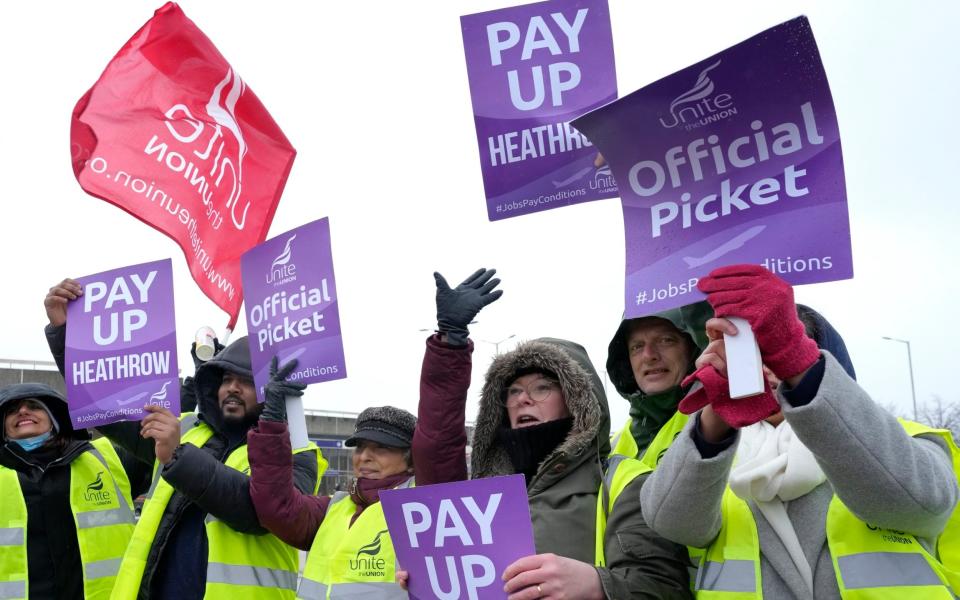
02:47 PM
Bus drivers to vote on strike action
Hundreds of bus drivers are being balloted for strikes in a dispute over pay.
Unite said 360 of its members employed by First Manchester will vote in the next few weeks on whether to launch a campaign of industrial action.
The union claimed the drivers earn less than other bus drivers in the area.
Unite general secretary Sharon Graham said: “First Manchester pays it workers the worst rates in the region, yet profits continue to soar.
“Not only are the drivers struggling with rising living costs, the low wages paid by First Manchester are causing staffing shortages its workers are bearing the brunt of.”
02:37 PM
Wall Street inches higher at opening bell
The S&P 500 and Nasdaq opened slightly higher as Treasury yields slipped after data showed weekly jobless claims rose more than expected, countering some concerns about further interest rate hikes.
The Dow Jones Industrial Average was flat at the open at 33,656.98.
The S&P 500 opened fractionally higher at 4,268.69, while the Nasdaq Composite gained barely 0.1pc to 13,113.27 at the opening bell.
02:28 PM
GSK workers to strike over pay
Some 750 workers at drugs giant GSK will go on strike in a dispute over pay, which unions claim could create a shortage of medicines.
The engineers, process technicians, laboratory analysts, warehouse workers and fire officers will walk out for a total of 12 days after rejecting an offer of a 6pc rise and a one off lump sum of £1,300.
The union Unite said the pay offer was in stark contrast GSK’s chief executive Emma Walmsley, who received £8.4m last year.
The strike action will involve workers at GSK’s plants at Barnard Castle, Irvine, Montrose, Ulverston, Ware and Worthing, with the first strike held at Ware on June 9.
Unite national officer Tony Devlin said:
Strikes have already depleted GSK’s stockpile of medicines and vaccines and fresh industrial action will create further shortages.
However, this dispute is totally of GSK’s own making. The company has admitted it can make a fair pay offer but it has chosen not to.

02:14 PM
Oil rises despite rising stockpiles
Oil prices have ticked up as investors weighed up mixed US data on crude and petroleum stockpiles.
Brent crude, the international benchmark, has risen 0.6pc toward $78 a barrel, while West Texas Intermediate futures tipped over $73 a barrel after gaining 1.1pc on Wednesday.
Crude stocks rose at the Cushing storage hub in Oklahoma for a seventh week, while gasoline stockpiles also gained, according to government figures.
However, the use of refinery capacity was at the highest level since 2019, providing some bullish sentiment for summer demand.
Oil is still down 10pc this year as China’s sluggish economic recovery, interest rate increases around the world and robust Russian crude flows weigh on prices.
01:57 PM
US jobless claims at highest in 20 months
Applications for US unemployment benefits jumped last week to the highest level since October 2021, suggesting mounting layoff announcements are starting to translate into job cuts.
Initial jobless claims rose by 28,000 to 261,000 in the week ended June 3, a Labor Department report showed, well ahead of economists’ predictions of about 235,000.
Continuing claims, which include people who have received unemployment benefits for a week or more and are a good indicator of how hard it is for people to find work after losing their jobs, fell to 1.76m in the week ended May 27.
The report indicates the jobs market, while largely resilient, is starting to show signs of cooling.
US companies announced more layoffs in the first five months of 2023 than in all of last year.
The data follow the government’s monthly jobs report, which last week painted a mixed picture regarding the direction of the employment market.
While the US added the most payrolls in May since the start of the year, the unemployment rate ticked up and wage growth slowed.
1/ Big jump in weekly initial claims data. *If it sticks* the highest since 2021. BUT I think experience with erroneous initially-reported numbers makes me pretty cautious here. More later in this thread. pic.twitter.com/Uad228y2Mv
— Guy Berger (@EconBerger) June 8, 2023
01:43 PM
Homeowners remortgaging at the start of 2024 face a 50pc jump in bills
Homeowners remortgaging next year face an increase on their bills of up to 50pc, economists have warned.
The Bank of England has said an average of 430,000 households will refinance each quarter this year, just as mortgage costs surge as the Bank raises interest rates to tackle inflation.
Capital Economics has predicted mortgage rates will increase to 5.6pc over the next year, compared to previous estimates of 4.6pc.
It means that someone who took out a 75pc loan-to-value mortgage of £180,000 on the average priced house of £240,000 in June 2021 will see their mortgage payment increase from around £700 to £1000 when they refinance this month.
Senior property economist Andrew Wishart warned that if rates rise to a peak of 5.5pc to 6pc, then the largest jump in mortgage costs will come in early 2024, when a similar borrower could see their monthly payment rise by £380, up 50pc. He said:
In the past there has been a lag of around a year and a half between the increase in mortgage costs and higher mortgage arrears and repossessions.
There is a growing risk that the pressure on household budgets from inflation and the large increase in payments for those coming to the end of a two-year fix cause financial distress to occur earlier than in the past.
01:28 PM
Gas prices on target for first weekly gain since March
European wholesale gas prices are headed for their first weekly gain since the end of March amid a prolonged outage in Norway and a heatwave which is expected to turn up demand for air conditioning.
The benchmark contract has risen as much as 11pc today in a third daily advance this week.
Annual maintenance at Norway’s Ormen Lange field will last until early July, about a week longer than previously expected, according to network operator Gassco.
Meanwhile, Europe is braced for higher temperatures this weekend, which could boost demand for gas used in cooling.
Dutch front-month futures were last up 6.8pc to more than €28 per megawatt hour.
01:12 PM
GameStop shares plummet as boss sacked
Shares of GameStop have been plunging before the opening bell in New York after the company sacked its chief executive.
Former Amazon executive Matthew Furlong was brought in two years ago to turn around the struggling video game retailer.
The company gave no reason for the dismissal and named Ryan Cohen, the company’s biggest investor, as executive chairman.
Mr Cohen sent a cryptic tweet that read “Not for long” around the time the company announced Mr Furlong’s departure.
GameStop said Mr Cohen will oversee investment and management of the company.
Shares tumbled more than 21pc in premarket trading.
has terminated CEO Matthew Furlong and named Ryan Cohen as its executive chairman.
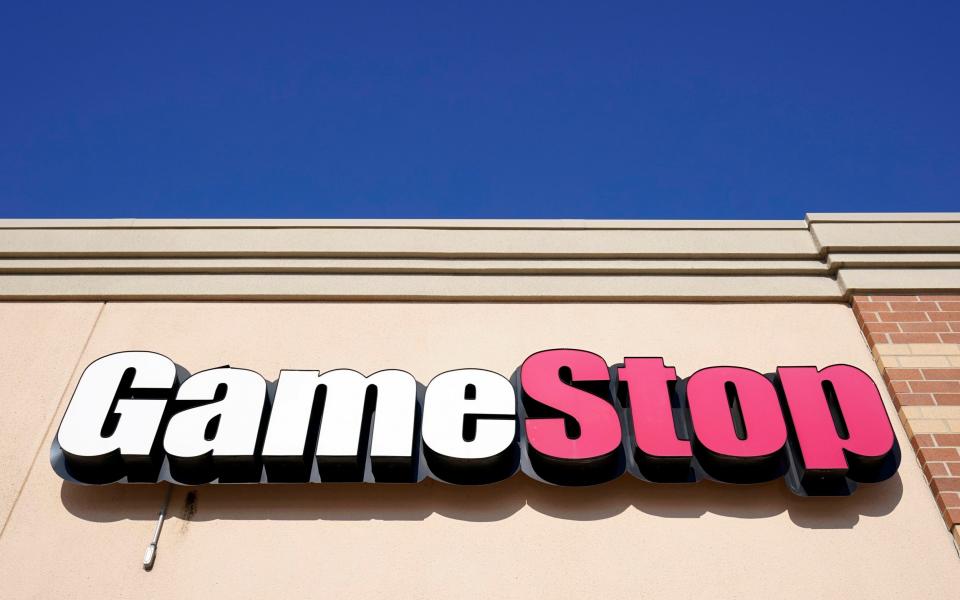
01:00 PM
US markets poised to edge downward
Wall Street is on course to begin its next session slightly lower as government bond yields hover near recent highs over worries that major central banks could keep raising interest rates.
The benchmark S&P 500 and the tech-heavy Nasdaq closed lower on Wednesday, with megacap stocks leading declines as US bond yields rose after the Bank of Canada surprised markets with an interest rate increase.
Microsoft slipped marginally in premarket trading, while Apple and Amazon inched up after Wednesday’s declines.
The two-year Treasury yield, which tends to move in step with short-term rate expectations, has risen for a third day to 4.56pc, as investors await the Federal Reserve meet next week.
In premarket trading, the Dow Jones Industrial Average, S&P 500 and Nasdaq 100 were all down 0.1pc.
12:22 PM
Putin's energy war cost taxpayers £2,500 a second
Vladimir Putin’s energy war following his invasion of Ukraine cost taxpayers £2,500 a second as the Government tried to limit household bills over the winter.
The Government spent nearly £40bn to help households cope with rising gas and electricity costs as the Kremlin weaponised the energy sector to help fund Moscow’s war in eastern Europe.
Typical household bills would have peaked at nearly £4,300 a year without the Government’s intervention between October last year and March after huge turmoil in the global energy market.
The £39.3bn bill for subsidies, which helped cap typical annual bills at £2,500 and provide monthly payments of £67 to help households with rising costs, has cost the Treasury around £2,500 every second since October.
This has partly been funded through windfall taxes levied on oil and gas producers like Shell and BP, which are expected to have raised nearly £26bn by March 2028.
Chancellor Jeremy Hunt said: “Putin’s weaponisation of global gas prices meant our energy bills soared, which is why we stepped in with immediate relief and cut the typical household energy bill by around half last winter, driving down inflation and relieving pressure on families”.
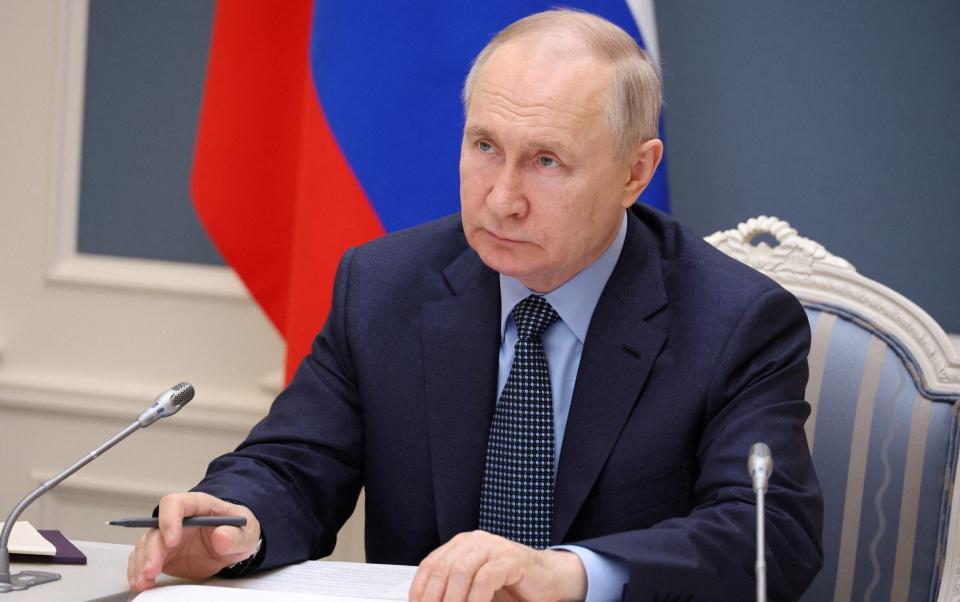
12:05 PM
Princess of Wales' parents' business collapsed owing £2.6m
The party supplier business founded by the Princess of Wales’s parents collapsed with a shortfall of around £2.6m to suppliers, lenders and the taxman, according to administration documents.
Party Pieces Holdings, which was founded by Carole and Michael Middleton in 1987, tumbled into administration last month.
The company, which was immediately sold to entrepreneur James Sinclair in a pre-pack administration deal, blamed the impact of the pandemic on the party market and pressure from the cost-of-living crisis for its failure.
Party Pieces, which sells children’s party paraphernalia, saw its revenues shrink to £3.2m last year from £4.5m in 2021, and slid to a £900,000 net loss before tax as a result.
A report from administrators at Interpath Advisory said they were hired and oversaw the rescue sale after previous takeover attempts could not be agreed.
The report said the firm had an estimated £197,739 worth of assets to return to preferential creditors.
However, Party Pieces was £2.6m short of what it needed to pay off its long list of debts, according to the filings.
The company, which had only 12 employees at the time of its administration, owed £612,685 in tax.
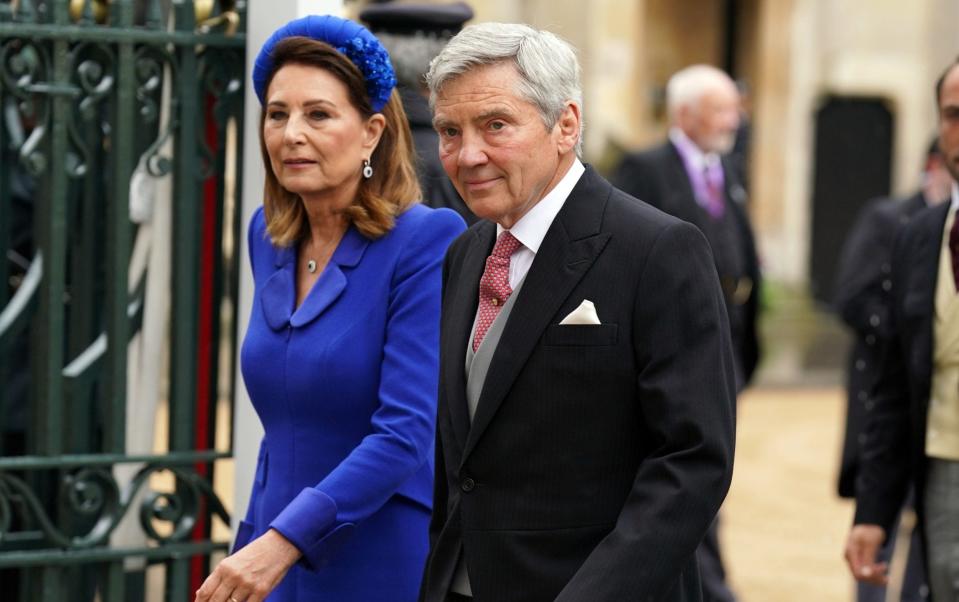
11:43 AM
BlackRock vice chairman expects China growth to slow
The vice chairman of the world’s largest asset manager has sounded the alarm on investments in China amid rising geopolitical tensions with the US and a slowing economy.
China’s growth could slow to just 3pc by the end of the decade, partly to demographic changes, according to BlackRock’s Philipp Hildebrand.
Its shifting relationship with the US is also forcing investors to price in additional risks that could lower investment allocations.
He told Bloomberg TV:
What might have been an obvious kind of play to say ‘we need to increase allocation to China’ now has a different calculus driving it.
We have to reassess how to allocate in China.
11:28 AM
Plan for £1bn float delivers fresh boost for London stock markets
London’s stock market has received a second boost in a week as a company thought to be worth a little under £1bn has said it plans to list its shares in the City.
The capital has seen a desperately slow start to the year, with listings dropping 80pc in the first quarter, compared to 2022, and a full 99pc fall compared to 2021’s record first quarter, according to data from EY.
Companies have stayed away due to the Ukraine war, high energy prices and wider inflation, EY said.
Today, London-headquartered CAB Payments said it is considering a plan to list its shares on London’s main market.
The company, which offers cross-border payments to businesses in emerging markets, is expected to be valued at between £800m and £1bn, according to specialist media outlet Mergermarket.
CAB Payments chief executive Bhairav Trivedi said: “Our intention to list on the London Stock Exchange is a sign of confidence in the high quality offering we provide to our customers in a large and growing market; confidence in our strong financial profile... and confidence in the UK as the home for innovative and growing global businesses.”
Last week the Telegraph revealed that Hong Kong-based professional services firm Amicorp Fund Services UK is planning a London listing.
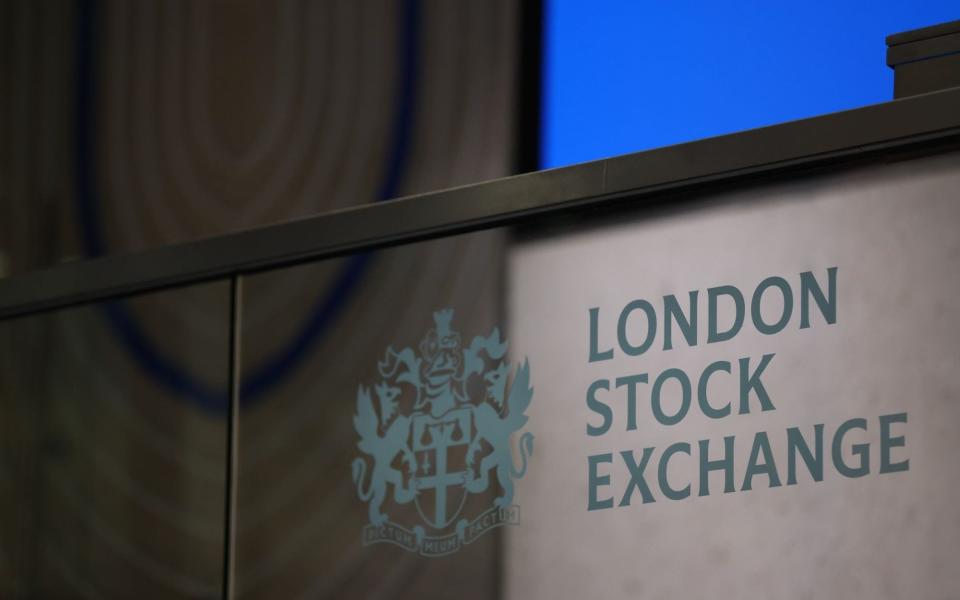
11:15 AM
Google to clamp down on staff who work from home
Google has threatened to clamp down on staff who fail to come to the office, warning attendance will be included as part of their performance reviews.
Senior technology reporter Matthew Field has the details:
The tech giant again updated its hybrid working policy on Wednesday, explaining badge attendance would be logged when employees come into the office each morning.
Fiona Cicconi, Google’s chief people officer, emailed staff: “There’s just no substitute for coming together in person.”
Google already has a policy that staff should come into the office at least three days per week.
Ms Cicconi added it would now begin including compliance with the policy as part of its staff reviews and send warnings to workers “who are consistently absent from the office,” CNBC reported.
Read what else the company’s HR chief asked staff.

10:59 AM
European economy 'is in a phase of stagnation'
The latest figures showing the eurozone fell into recession at the start of the year cast doubt over more optimistic predictions for the whole of 2023.
The European Commission forecast in mid-May that growth for the year would reach 1.1pc across the 20 countries that use the single currency.
Charlotte de Montpellier, an economist at ING Bank, predicted that the figure for 2023 would only reach 0.5pc. She said:
Since the spring, all the data has been bad.
The European economy is in a phase of stagnation and has had difficulty getting through the winter because of the energy shock.
10:41 AM
Pound rises against the dollar
The pound has gained against the dollar as surprise interest rate increases by the Bank of Canada and the Reserve Bank of Australia this week have caused markets to raise their expectations for monetary tightening around the world.
Sterling has risen 0.2pc to trade at $1.24, even as traders contemplated the possibility of another rate hike by the US Federal Reserve, even if it pauses its long-running series of rises next week.
However, the pound has lost 0.1pc against the euro, which is worth 86p, as European Central Bank policymakers struck a hawkish tone and guided that more rate hikes are on the horizon, with interest rates likely to stay higher for longer.
10:19 AM
Eurozone economy 'likely to contract again,' warn economists
The eurozone will likely contract further during the rest of this year, according to economists, as it emerged the eurozone was in recession at the start of 2023.
Capital Economics’ chief Europe economist Andrew Kenningham said the darkened perspective “did not come as a surprise” following large downward revisions of estimates by Germany and Ireland. He added:
The expenditure breakdown, which was published for the first time today, confirms that domestic demand has been hit hard by the combination of inflation and rising interest rates as household consumption declined by 0.3pc quarter on quarter following a 1pc fall in Q4.
Government consumption also fell sharply (by 1.6pc quarter on quarter) and exports were broadly unchanged while imports fell.
Today’s data mean that the euro-zone has experienced two successive quarters of negative GDP growth and therefore met the standard definition of a recession – albeit only by a fraction and partly thanks to a big fall in Ireland’s GDP data which don’t give an accurate picture of the underlying situation.
The big picture, however, is that the euro-zone economy was broadly stagnant during the past two quarters – and we think GDP is likely to contract again in Q2 as the effects of monetary policy tightening continue to feed through.
10:07 AM
Eurozone suffers recession at start of year
The eurozone fell into recession at start of 2023, revised data show, as cost-of-living pressures hit home.
Eurostat revised down its estimate for gross domestic product across the bloc to a contraction of 0.1pc.
It comes after a decrease of the same amount in the fourth quarter of 2022, meaning the eurozone started the year in recession.
Euro area #GDP -0.1% in Q1 2023, +1.0% compared with Q1 2022 https://t.co/CybdBFvQxH pic.twitter.com/jkkFXaUBaC
— EU_Eurostat (@EU_Eurostat) June 8, 2023
09:44 AM
Ministers block Royal Mail plans to axe Saturday deliveries
Royal Mail’s pleas to axe Saturday deliveries have been blocked by ministers as regulators investigate where to fine the company for breaching its obligation to deliver six days a week.
The former FTSE 100 company had warned that its poor financial performance will continue unless ministers let the company abandon Saturday letter deliveries.
It had argued that the decline of letters means its current programme of deliveries is financially unviable.
However business minister Kevin Hollinrake told the company today that the Government has no plans to review its so-called universal service obligation. He wrote:
Postal services have long played, and continue to play, a key role in our society.
The ability to send and receive letters and parcels is important both socially and economically. This is particularly true for consumers who might be more vulnerable, such as those who are geographically or digitally isolated from their friends and family.
The Government’s objective continues to be to ensure provision of a financially sustainable, affordable and accessible universal service regulated by Ofcom.
As you will be aware, we currently have no plans to change the minimum requirements of the universal postal service as set out in the Postal Services Act 2011 (the Act), including 6-day letter deliveries.

09:33 AM
Social media giants 'allow misleading crypto promotions'
Instagram, YouTube, TikTok and Twitter could face regulatory action after a European consumer group complained to the European Commission that the platforms allegedly facilitate the misleading promotion of crypto assets.
US regulators suing crypto platforms Coinbase and Binance, along with last year’s collapse of FTX, have sparked concerns over consumer protection related to crypto assets such as bitcoin and ether.
UK regulators have said that first-time investors in crypto should be offered a 24-hour cooling-off period by those marketing them as they introduce an advertising crackdown.
The European Union last month adopted the world’s first comprehensive set of rules for cryptoasset regulation, known as MiCa.
European consumer group BEUC said in its complaint that the proliferation of misleading advertisements of crypto assets on the social media platforms is an unfair commercial practice as it exposes consumers to serious harm such as the loss of significant amounts of money.
It said this was happening through advertising and influencers.
Consumer groups in Denmark, France, Greece, Italy, Lithuania, Portugal, Slovakia and Spain also signed up to the complaint.

09:20 AM
Europe well-prepared for gas needs next winter - but 2024 uncertain
Europe is relatively well-prepared for the energy demands of next winter, closely watched trading data indicates, but the outlook for the following year remains unclear as Putin’s energy war continues.
The spread between Europe’s natural gas prices for this winter and next is widening, signalling near-term risks are easing but greater uncertainty ahead.
Futures for December 2023 are trading at a discount of about 8pc to December 2024, according to ICE Endex data.
That is a reversal from January, when the nearest winter contract traded at a premium.
The shift indicates Europe is in a good position for the upcoming winter following a mild winter that allowed it to build up storage levels with an influx of liquefied natural gas.
But the coming years are more uncertain, as the region adjusts to a new reality with scant help from former top supplier Russia.
Nick Campbell, a director at consultant Inspired Energy, said winter next year “feels more risky,” adding a cold winter this year could potentially lower storage balances ahead of next summer.
Dutch front-month futures, Europe’s benchmark for pricing, have jumped 3.5pc in early trading to more than €27 per megawatt hour.
09:00 AM
UK's 'pragmatism' on data protection helped secure Palantir HQ
The chief executive of Palantir said the UK’s “pragmatism about technology” was one of the things that attracted the US data giant to set up its European AI research headquarters in Britain.
Palantir’s founder and chief executive Alexander Karp told BBC Radio 4’s Today programme:
The UK is a bastion in the world for attracting talent. The educational institutions are some of the best in the world.
Also, the UK, as opposed to many places in the world, has a pragmatic understanding of data protection.
Data protection is serious but you can actually work within the context of what large-language models do.
It is going to be much harder for the continent of Europe to actually come to terms with large-language models.
The culture of privacy in the UK is really built around norms of fairness and understanding and less around GDPR data protection. We can work in conformity with that.
You have talent that is the best in the world, you have a pragmatism about technology and you have a very special relationship with the most important country in the world on AI by far now, which is the United States of America.
08:48 AM
Vodafone slumps limits gains on FTSE 100
Stock indexes have been largely flat as gains from a boost from mining and energy stocks were capped by a sharp drop in the shares of Vodafone.
The resource-heavy FTSE 100 was up less than 0.1pc, while the domestically-focused FTSE 250 midcap index was also little changed.
Oil and gas and miners were the top sector gainers, while precious metals and chemicals took the worst hit.
Vodafone was the biggest drag, falling 5.1pc after hitting a one-week high on Wednesday, after Reuters reported that the company and Hutchison are in the final stages of a merger agreement for their British operations. Its shares are also trading ex-dividend, meaning dividend payments will no longer be paid to investors who purchase a stock from today.
Wizz Air gained 2pc after the European low-cost airline forecast a net profit of €350m to €450m (£281m to £361m) in its current financial year.
Crest Nicholson dropped 3.7pc after warning of further slowdown in the British housing market.
08:38 AM
Hitachi's £1.7bn takeover of Thales thrown into doubt
The UK’s competition watchdog has provisionally ruled that Hitachi’s €1.7bn (£1.4bn) proposed purchase of Thales’s rail infrastructure could drive up prices and reduce service quality for passengers.
The Competition and Markets Authority (CMA) said the merger involves two of the leading suppliers of signalling systems for mainline and urban railway networks.
It could therefore mean Network Rail and the London Underground lose out on digital signalling options, with the industry already highly concentrated with a small number of suppliers.
The CMA said it would now consult its findings, which could lead to the merger being blocked.
Stuart McIntosh, chairman of the independent inquiry group for the CMA, said:
We have provisionally found that, should the merger go ahead, it would reduce the number of signalling suppliers in what is already a highly concentrated industry, and the resulting loss of competition could leave transport networks and passengers worse off.
We will now consult on our findings and on how Hitachi and Thales might address our concerns, in a way that protects passengers and delivers the Government’s objective for a more reliable, efficient and modern railway.
08:30 AM
Palantir chooses UK for European AI HQ
US tech giant Palantir will make the UK its new European headquarters for AI development, with the Government saying that showed the strength of the UK’s expertise.
The announcement comes as Britain announces plans to host a major summit on the risk posed by AI and is expected to push for London to be the location for a new global AI regulator, modelled on the International Atomic Energy Agency.
The Prime Minister caught up with Palantir’s founder Alexander Karp at a baseball game on Wednesday between the Washington Nationals and Arizona Diamondbacks.
Chief executive Mr Karp said: “London is a magnet for the best software engineering talent in the world, and it is the natural choice as the hub for our European efforts to develop the most effective and ethical artificial intelligence software solutions available.”
08:13 AM
US close to 'late, big-cycle debt crisis,' warns Dalio
As bond markets slump around the world, billionaire former hedge fund manager Ray Dalio has warned that the US is on the verge of a debt crisis.
The founder of Bridgewater Associates, which runs the world’s largest hedge fund, said: “We are at the beginning of a late, big-cycle debt crisis when you are producing too much debt and have a shortage of buyers.”
He told the Bloomberg Invest conference in New York that while interest rates will not go much higher, the economy will get worse, and that could cause more internal strife if the US continues to have political fragmentation.
Mr Dalio, 73, who gave up control of Bridgewater last year, has a net worth of about $16.5bn, according to the Bloomberg Billionaires Index.
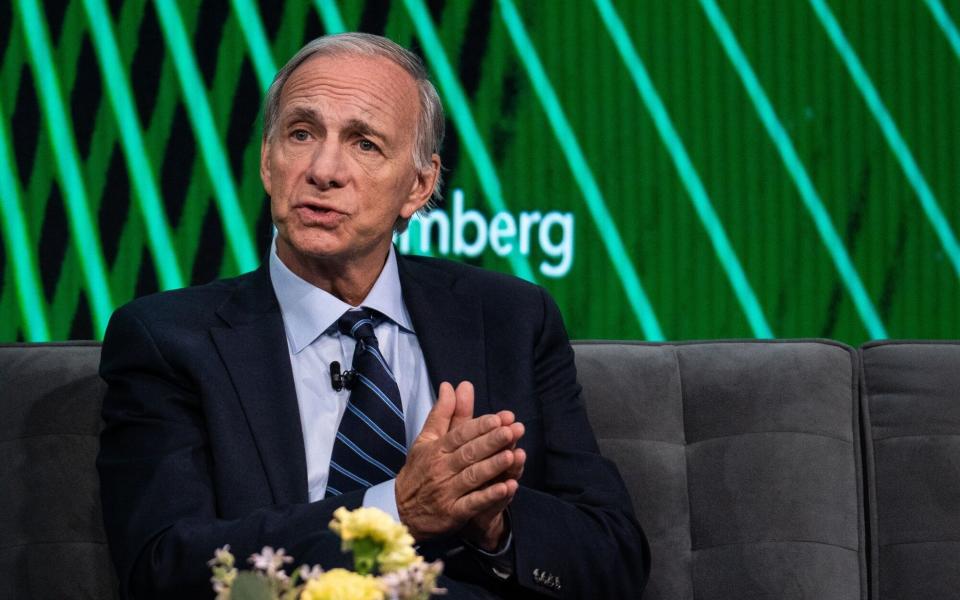
08:05 AM
Mixed open for UK stock markets
Stock markets have made a lukewarm start to the day after heavy selling of big-name tech stocks pushed benchmarks lower on Wall Street.
The FTSE 100 has risen 0.1pc to 7,629.27 while the midcap FTSE 250 has fallen 0.1pc to 19,141.77.
07:48 AM
FirstGroup shrugs off loss of TransPennine Express rail franchise
Transport giant FirstGroup has said it expects to keep profits on track over the year ahead despite ongoing rail strike action and being stripped of its TransPennine Express franchise by the Government last month.
The bus and rail firm said it expects “broadly consistent” earnings from its trains business in the year to next March, although it it cautioned that the “economic and industrial relations backdrop remains challenging”.
FirstGroup saw its TransPennine Express franchise taken over by the Government at the end of May - a decision the firm said was a “huge disappointment”.
It also said the past few years have been “among the most challenging in the history of the UK’s rail industry” as it has grappled with the pandemic and changing passenger habits, as well as industrial action.
FirstGroup’s full-year results showed pre-tax profits falling sharply to £128.7m from £654.1m in the year to March 25 due to the sale of its First Student, First Transit and Greyhound businesses.
It said with this impact stripped out, underlying earnings more than doubled to £82.1 million from £36.2 million the previous year.

07:40 AM
Crest Nicholson hit by 'rapidly' falling consumer confidence
Property developer Crest Nicholson has reported shrinking sales amid “rapidly” falling consumer confidence and rising borrowing costs, following the September mini-Budget.
The housebuilder said its revenue fell by more than a fifth to £282.7m in the six months to the end of April, from £364.3m the prior year.
The decline reflected economic uncertainty and softer demand for homes weighing on the housing market, the company said.
It also saw its adjusted pre-tax profit more than halve from £52.5m to £20.9m this year, which it said was worsened by cost inflation affecting construction.
Crest called on the Government to better support budding homeowners against rising borrowing costs, warning that if interest rates remain high it will start to impact buyer confidence again.

07:36 AM
Wizz Air to return to profit as passengers seek summer sun
Wizz Air said it will return to profit this year as the peak summer travel season gets underway.
The Hungarian low-cost carrier said net income in the coming fiscal year will reach €350m (£301m) to €450m, compared with a net loss of €535.1m last year.
The so-called load factor, which indicates cabin occupancy, will be above 90pc this year.
In its statement to shareholders, the company said: “We are now well placed to continue to drive profitable growth through the rest of the decade and beyond.”
The carrier said it will “continue to be disciplined and focused on cost management,” and that it will adjust operations “in the face of airport and airspace interruptions impacting all European operators.”
Wizz Air has benefited from a surge in sun-starved travellers wanting to jet abroad this summer after being cooped up during the pandemic.
But the budget airline has not profited as much as other airlines such as Ryanair and British Airways which have raised their full-year earnings outlook this year amid pent-up demand.

07:26 AM
Global bond markets slump as inflation worries deepen
The cost of Government borrowing has jumped after two surprise interest-rate rises this week delivered a reality check about the fight against inflation.
Two-year UK gilt yields, which are more sensitive to interest rates, climbed nine basis points to 4.55pc after the Bank of Canada joined the Reserve Bank of Australia in surprising markets with more rate hikes.
The bonds’ yields - the return the Government must offer to buyers of its debt - have climbed 28 basis points in the last week, while the yield 10-year UK gilts have risen 13 points in the last week.
Government bond values slumped and yields climbed in much of Asia overnight as investors reassessed the risks from inflation, with shorter-maturity US Treasury yields close to their highest since March.
Their Australian equivalents have jumped to levels last seen more than a decade ago.
It comes ahead of a key US Federal Reserve decision at its meeting on June 13 to 14, where traders are expecting the central bank of the world’s largest economy to pause its long-running programme of interest rate rises.
Colin Graham, head of multi-asset strategies at Robeco, said: “The Reserve Bank of Australia defied economist predictions to increase the cash rate again this week, which may put more pressure on the European Central Bank, US Federal Reserve, Bank of Japan and Bank of England.
“Expectations for July have now shifted from an expected cut to an expected rise.”
Diana Iovanel, economist at Capital Economics, said: “With inflation having proved more stubborn than we’d thought, we now think the central bank will keep its policy rate higher for longer than we had previously projected.”
Traders have boosted wagers on Federal Reserve rate increases, with swaps close to pricing in a quarter-point hike for the July meeting.
Benchmark 10-year yields rose around 15 basis points in Australia and while Japanese yields of the same maturity edged about two basis points higher. The yield on Australia’s three-year note climbed levels last reached in 2012.
Yields rose slightly in India, even after the central bank kept rates unchanged. The governor mentioned the hikes in Australia and Canada — a possible hint at future increases amid the uncertain inflation outlook. Yields also advanced in Indonesia, the Philippines and Malaysia.
Madhavi Arora, lead economist for Emkay Global Financial Services, said:
Clearly we are not near the terminal rate as far as the western world is concerned.
There is a risk you may see further increases by the US Fed.
07:18 AM
Good morning
Government borrowing costs are on the rise after unexpected interest rate rises in Canada and Australia spooked markets.
The yields on two-year UK gilts have risen 28 basis points in the last week to 4.55pc, while 10-year gilt coupons have climbed 13 points over the same period as markets react to a longer than expected fight against inflation.
5 things to start your day
1) Britain will take world lead on AI threat, Sunak to tell Joe Biden | PM also expected to push for London to be HQ of new global regulator as he makes first visit to White House of his premiership
2) Sadiq Khan vows to block London asylum barge plans | London mayor and Met police oppose plan to house migrants on barge next to City airport
3) High taxes are discouraging Britain from working, says recruitment giant | Cut taxes to boost labour market, Reed chairman urges Jeremy Hunt
4) Jeremy Hunt’s stealth tax raid to put ‘significant’ pressure on UK household finances | Chancellor’s decision to freeze thresholds drags millions of tax payers into higher bands
5) Heathrow security staff will strike almost every weekend over summer | Passengers face disruption as security guards walk out over double-digit pay demands
What happened overnight
Asian shares fell Thursday after heavy selling of big-name tech stocks pushed benchmarks lower on Wall Street.
Japan’s benchmark Nikkei 225 sank 1.3pc to 31,517.45. Australia’s S&P/ASX 200 shed 0.2pc to 7,105.30. South Korea’s Kospi slipped 0.6pc to 2,599.49.
Hong Kong’s Hang Seng slid 0.4pc to 19,177.52. The Shanghai Composite lost 0.1pc to 3,193.86.
Taiwan’s Taiex lost 1.1pc, while India’s Sensex edged 0.1pc higher.
US stocks drifted to a mixed close as drops for Microsoft and other tech majors overshadowed gains across much of Wall Street.
The S&P 500 fell 0.4pc to 4,267.52 even as the majority of stocks within the broad-base index rose. The Dow Jones Industrial Average climbed 0.3pc to 33,665.02, while the Nasdaq Composite sank 1.3pc to 13,104.89.
Treasury yields rose after the Bank of Canada raised borrowing costs for the first time since January, ahead of a decision on interest rates next week by the Federal Reserve. The benchmark yield on the 10-year Treasury rose to 3.78pc from 3.68pc late Tuesday.

 Yahoo Finance
Yahoo Finance 